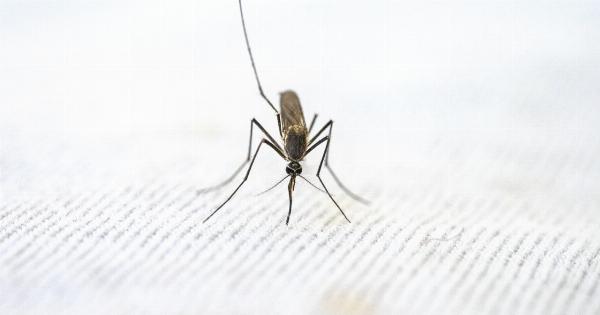In recent news, there has been a sudden surge in cases of the Middle East Respiratory Syndrome Coronavirus (MERS-CoV) spreading.
With its rapid transmission rate and high mortality rate, health authorities across the globe are on high alert to combat this deadly virus.
What is MERS-CoV?
MERS-CoV is a viral respiratory illness that was first reported in Saudi Arabia in 2012. It belongs to the same family of viruses as the Severe Acute Respiratory Syndrome (SARS) and the common cold.
MERS-CoV is known for its ability to cause severe respiratory distress, leading to pneumonia and even organ failure in some cases.
Transmission and Symptoms
MERS-CoV is primarily transmitted from animals to humans.
The virus has been found in dromedary camels, which serve as natural hosts, and humans can become infected through close contact with these animals or by consuming their unpasteurized milk or undercooked meat.
Human-to-human transmission occurs when there is close contact with an infected individual, typically through respiratory droplets generated during coughing or sneezing.
Healthcare settings, like hospitals, are particularly susceptible to outbreaks due to the close proximity of infected patients and healthcare workers.
The symptoms of MERS-CoV usually appear within 2-14 days after exposure and include fever, cough, shortness of breath, and diarrhea. In severe cases, the infection can progress to pneumonia and kidney failure, which can be life-threatening.
Spread of MERS-CoV
MERS-CoV has now spread beyond the Middle East and cases have been reported in countries throughout the world. South Korea experienced a major outbreak in 2015, resulting in multiple deaths and causing panic among its population.
The virus can easily cross borders through international air travel and has the potential to become a global pandemic if not effectively contained.
Current Situation
The World Health Organization (WHO) and other global health organizations are closely monitoring the situation and providing guidelines for prevention and control.
Efforts are being made to enhance surveillance, early detection, and rapid response in order to prevent further spread of the virus.
Healthcare professionals are being advised to adhere to strict infection control measures, such as wearing personal protective equipment (PPE) and practicing proper hand hygiene.
Public health campaigns are also being initiated to educate the general population about the symptoms, mode of transmission, and preventive measures.
Treatment and Vaccines
Currently, there is no specific antiviral treatment for MERS-CoV. Supportive care is provided to relieve symptoms and prevent complications. In severe cases, patients may require hospitalization and advanced respiratory support.
Researchers and scientists are actively working towards the development of effective vaccines and antiviral drugs to combat MERS-CoV.
However, vaccine development and testing take time, and until a safe and effective vaccine is available, preventive measures and early detection remain the key strategies to control the spread of the virus.
Preventive Measures
As there is no specific treatment for MERS-CoV, prevention is the best approach to protect oneself from the virus. Some preventive measures include:.
- Washing hands frequently with soap and water for at least 20 seconds.
- Using hand sanitizers containing at least 60% alcohol if soap and water are not available.
- Avoiding close contact with infected individuals, especially those displaying flu-like symptoms.
- Avoiding close contact with dromedary camels or their bodily fluids.
- Avoiding consumption of raw camel milk or undercooked camel meat.
- Practicing respiratory hygiene, such as covering the mouth and nose with a tissue or elbow when coughing or sneezing.
- Maintaining a clean and hygienic environment, especially in healthcare settings.
- Seeking medical attention promptly if experiencing symptoms associated with MERS-CoV.
Global Preparedness
The MERS-CoV outbreak serves as a stark reminder of the need for global preparedness to combat emerging infectious diseases. It highlights the importance of strong healthcare systems, effective surveillance, and robust international collaboration.
Global health organizations are working towards strengthening capacities in member countries to detect, prevent, and respond to outbreaks effectively.
This includes improving laboratory capabilities, training healthcare workers, and establishing rapid response teams.
Conclusion
The ongoing spread of MERS-CoV is a cause for concern among health authorities worldwide. Vigilance and collaborative efforts are crucial to prevent further transmission and mitigate the impact of this deadly virus.
Adhering to preventive measures and staying informed about the latest developments can help protect individuals and communities from the threat of MERS-CoV.































